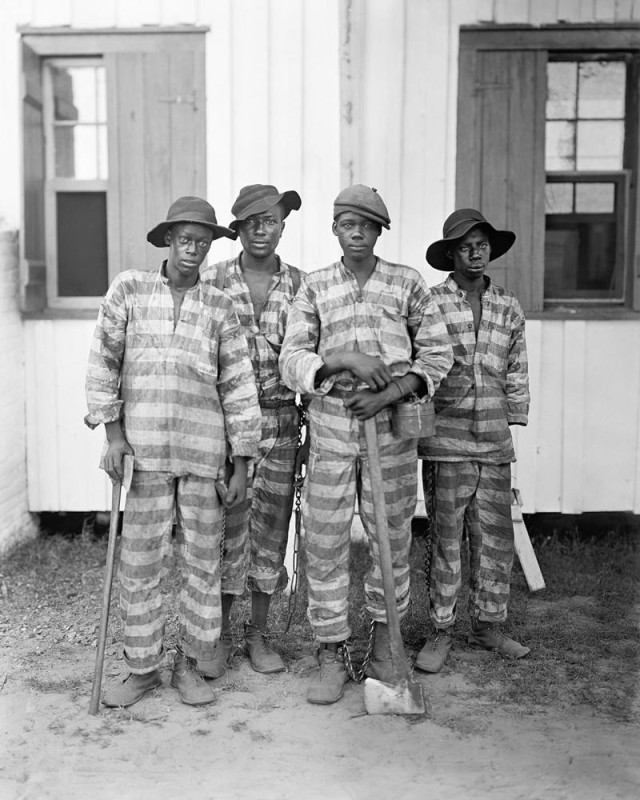More than 150 years ago, a prison complex known as the Lone Rock stockade operated at one of the biggest coal mines in Tennessee.
It was powered largely by African American men who had been arrested for minor offenses — like stealing a hog — if they committed any crime at all. Women and children, some as young as 12, were sent there as well.
The work, dangerous and sometimes deadly, was their punishment.
The state was leasing these prisoners out to private companies for a fee, in a practice known all across the South as convict leasing. In states like Texas, Florida, Georgia and Alabama , prisoners were also used to help build railroads, cut timber, make bricks, pick cotton and grow sugar on plantations.

In a joint investigation, reporters from the Associated Press and Reveal at the Center for Investigative Reporting spent months unearthing this history. They focused on Tennessee Coal, Iron & Railroad, which ran the stockade and coal mine, and the company that later bought it, U.S. Steel.
The team found someone living today whose ancestor was imprisoned in the Lone Rock stockade nearly 140 years ago. They also interviewed the descendent of a man who got rich from his role in pioneering Tennessee’s convict leasing system.
The reporters also heard from U.S. Steel. For the first time, it said it was willing to discuss its past with members of the affected community.
Companies across the South profited off the forced labor of people in prison after the Civil War – a racist system known as convict leasing.
WHAT IS CONVICT LEASING?
Convict leasing was essentially a new form of slavery that started after the Civil War and went on for decades across the South. States — and companies — got rich by arresting mostly Black men and then forcing them to work for major companies.
The 13th Amendment, passed after the Civil War, banned slavery and involuntary servitude. But it made an exception for people convicted of a crime, offering legal cover for convict leasing.
Tennessee and many other states adopted similar language in their constitutions that still exists today.
WHAT WAS THE THE LONE ROCK STOCKADE?
The Lone Rock stockade operated in Tracy City, Tennessee for more than 25 years. The prisoners lived in cramped, unsanitary conditions. Built to hold 200 people at a time, the prison sometimes held 600.
The men risked their lives every day above ground too, manning fiery, dome-shaped coke ovens used in the iron-making process.
They were helping Tennessee, Coal, Iron and Railroad get rich. The company was an economic powerhouse, later bought by the world’s biggest company at the time: U.S. Steel Corporation.